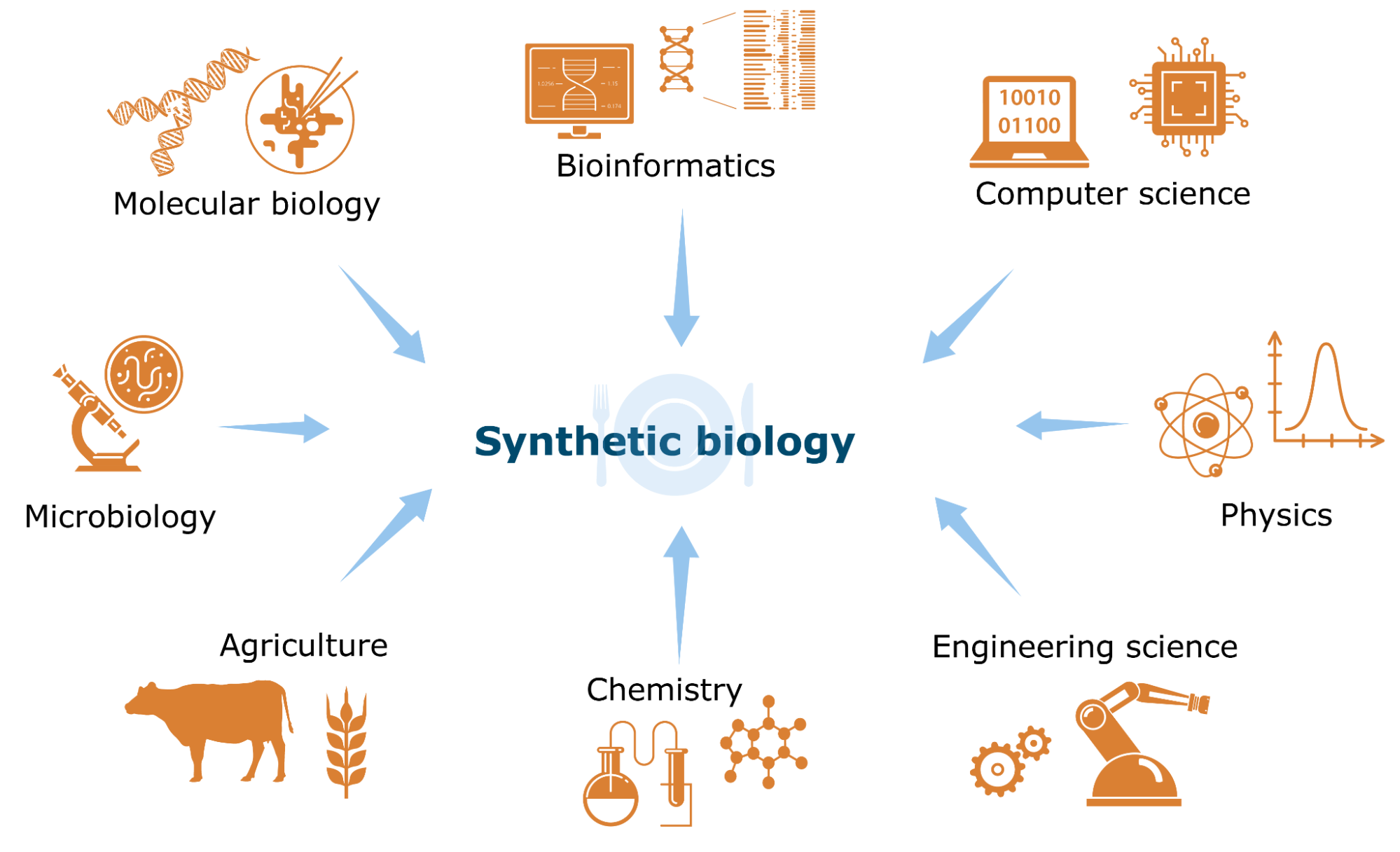Science & Technology
Synthetic Biology
- 18 Feb 2022
- 7 min read
For Prelims: Synthetic Biology, Applications of Synthetic Biology, Different National and International Laws and Conventions.
For Mains: Biotechnology, Scientific Innovations & Discoveries, intellectual property rights, National Policy on Synthetic Biology
Why in News?
Recently, the Department of Biotechnology, Ministry of Science & Technology released a draft foresight paper on synthetic biology.
- Synthetic biology has multifarious applications of energy, agriculture and biofuels. Thus, there is always a perceived threat of components releasing into the open environment.
- Therefore, the document stresses on the need for a national policy that can consolidate India’s stand on the issue.
What is Synthetic Biology?
- The term ‘synthetic biology’ was first used by Barbara Hobomin in 1980, to describe bacteria that had been genetically engineered using recombinant DNA technology.
- Synthetic biology refers to the science of using genetic sequencing, editing, and modification to create unnatural organisms or organic molecules that can function in living systems.
- Synthetic biology enables scientists to design and synthesise new sequences of DNA from scratch.
- The term was used to describe the synthesis of unnatural organic molecules that function in living systems.
- More broadly in this sense, the term has been used with reference to efforts to ‘redesign life’.
What are Applications of Synthetic Biology?
- Standardised Biological Parts- identify and categorise standardised genomic parts that can be used (and synthesised quickly) to build new biological systems.
- Applied Protein Design- redesign existing biological parts and expand the set of natural protein functions for new processes.
- For e.g, Modified rice to produce beta-carotene (a nutrient usually associated with carrots), that prevents Vitamin A deficiency.
- Natural Product Synthesis- engineer microbes to produce all of the necessary enzymes and biological functions to perform complex multistep production of natural products.
- For e.g, Microorganisms harnessed for bioremediation (use of living microorganisms to degrade environmental contaminants into less toxic forms) to clean pollutants from water, soil and air.
- Synthetic Genomics- design and construct a ‘simple’ genome for a natural bacterium.
- For e.g, Yeast engineered to produce rose oil as an eco-friendly and sustainable substitute for real roses that perfumers use to make luxury scents.
What are Potential Negative Impacts of Synthetic Biology?
- Negative Environmental Health: The intentional or accidental release of genetically engineered organisms into the environment could have significant negative impacts on both human and environmental health.
- Misuse of these technologies and a failure to account for unintended consequences could cause irreversible environmental damage.
- Do-It-Yourself Biology: It’s a movement of “citizen scientists” interested in synthetic biology experiments that has become an international phenomenon over the last decade.
- Often with little prior knowledge of the field, enthusiasts meet in makeshift labs to take crash courses in biotechnology and conduct hands-on experiments.
- Ethical Concerns: Many of the ethical questions relevant to synthetic biology are similar to ethical discussions related to genome editing like:
- Are humans crossing moral boundaries by redesigning organisms with synthetic biology techniques?
- If synthetic biology yields new treatments and cures for diseases, who in our society will have access to them?
What are Governance, Policy And Regulatory Aspects Relevant To Synthetic Biology?
- International Bodies & Agreements:
- Convention on Biological Diversity (CBD)
- Cartagena Protocol on Biosafety
- Nagoya Protocol on Access and Benefit Sharing
- Nagoya-Kuala Lumpur Supplementary Protocol
- Food and Agricultural Organisation (FAO)
- Convention on International Trade in Endangered Species of Wild Fauna and Flora (CITES)
- International Union for the Conservation of Nature (IUCN)
- Agreement on Trade Related Aspects of Intellectual Property Rights (TRIPS)
- UN Convention on the Law of the Sea (UNCLOS)
- Biological Weapons Convention.
- India is a party to all the International governance bodies discussed above.
- Convention on Biological Diversity (CBD)
- Indian Regulatory System:
Way Forward
- India is yet to formally come up with its national strategy on synthetic biology (both policy and regulatory).
- In this context, India’s policy and regulatory framework needs to focus on issues like,
- Defining what constitutes the science of synthetic biology.
- What kind of research and development priorities will be made for the public sector.
- Guidance for the private sector for future research and what all considerations will be undertaken related to relevant policy frameworks, including those in intellectual property rights.
- How India will regulate the development and use of this technology, considering issues related to environment and socio-economics.
- While making a national strategy India should consider Principles of International Law which are:
- The precautionary principle
- State sovereignty and prevention of transboundary harm.
- State responsibility and Environment Impact Assessment
- Principles of access to information, public participation and access to justice
- People’s right to self-determination and free prior informed consent
- Sustainable development and inter-generational equity







